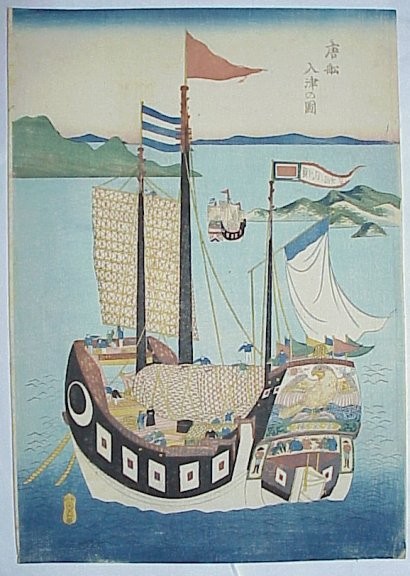Yuan Julian Chen
PhD Candidate in History, Yale University
“The Ecological Footprint of China’s Medieval Capital Kaifeng, 900-1200”
Thursday April 19th, 4:00-6:00 PM
John Hope Franklin Room [SSR 224]
Discussant: Dan Knorr, PhD Candidate, Department of History, University of Chicago
Please join the East Asia: Transregional Histories workshop in welcoming Yuan Julian Chen as she presents a draft of her dissertation chapter, titled “The Ecological Footprint of China’s Medieval Capital Kaifeng, 900-1200.” She has provided the following abstract:
From the 10th to the 12th centuries, the building of the new Song Dynasty capital at Kaifeng brought about profound ecological consequences in the Chinese Empire and beyond. With demographic, technological and economic growth, in addition to the shifting geopolitical landscape in East Asia, Kaifeng’s rapidly growing consumption and heightened security needs shaped ecologies in strategic borderlands and foreign territories alike, creating a vast “ecological empire” that radiated outwards from Kaifeng. I argue that three geo-factors –– geography, geoeconomics, and geopolitics –– played foundational roles in shaping the bounds of the ecological empire of Kaifeng, both within and outside of the Song empire proper.
This research will study the Kaifeng-centered ecological empire through the interplay of these factors. I will use six examples to illustrate the ecological consequences of the rise and fall of medieval Kaifeng: the Song emperors’ quest for legitimacy and lavish imperial garden building in Kaifeng; Kaifeng’s timber consumption and deforestation in old-growth forests in South China; Kaifeng’s seafood consumption and the booming of fisheries in the East China Sea; Kaifeng’s lamb consumption and desertification in the territories of the Xi Xia and Liao; the building of cavalry forces in the capital and the over-cultivation of tea in Sichuan; and Kaifeng’s need for security and the creation of a massive defensive forest along the Song-Liao border. This research will show that the Song period, from the view of Kaifeng, was not only a time of profound socio-political changes but also was an ecologically transformative era.
Yuan’s Paper can be found in the post below.
As always, first-time attendees are welcome. Light refreshments and snacks will be served. If you have any questions or require assistance to attend, please contact Robert Burgos at rburgos@uchicago.edu or Spencer Stewart at sdstewart@uchicago.edu.
